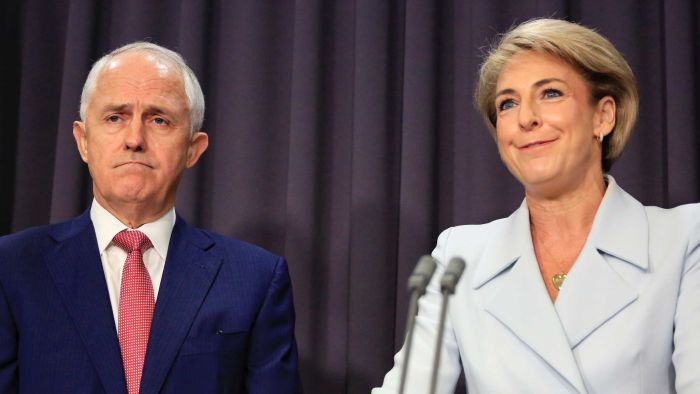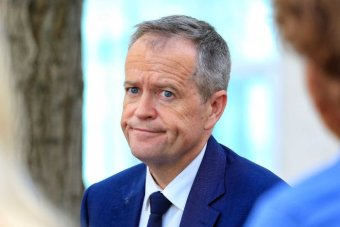PM proposes crackdown on 'illegitimate payments' to unions amid penalty rates brawl
Updated
 Video: Malcolm Turnbull described the proposed laws as necessary to restore integrity to the union sector.
(ABC News)
Video: Malcolm Turnbull described the proposed laws as necessary to restore integrity to the union sector.
(ABC News)
People who make secret payments to unions could be imprisoned for up to 10 years in legislation to be introduced to Parliament by the Prime Minister on Wednesday.
Key points:
- Prime Minister says proposed laws are necessary to crack down on rorting revealed in royal commission
- Corrupt payments would also attract $900,000 fine for individual, $4.5 million for a company
- Employment Minister says legitimate membership payments would still be allowed
The move came amid a fierce political battle over penalty rates, with the Turnbull Government accusing the Labor movement of cutting pay rates for workers in union-negotiated enterprise agreements.
Malcolm Turnbull has described the proposed laws as necessary to restore integrity to the union sector and to crack down on the rorting revealed in testimony to the Royal Commission into Trade Union Governance and Corruption.
Under the proposed laws, making corrupt payments would carry up to 10 years in prison and a $900,000 fine for an individual, increasing to $4.5 million for a company.
Other so-called "illegitimate payments" will result in a two-year jail term or a $90,000 fine for an individual, rising to $450,000 for a company.
"One of the issues the royal commission — in particular the Heydon royal commission — noted is across Australia there are different laws in relation to bribery," Mr Turnbull said.
"There is no consistency and it is difficult to prove.
"In relation to the industrial relation relations regime, Commissioner Heydon recommended a Commonwealth offence be introduced and an offence that outlawed all payments, full stop, unless they are legitimate."
The Prime Minister denied it was another example of union bashing, considering making corrupt payments is already a crime.
Employment Minister Michaelia Cash said legitimate payments to unions for membership services would still be allowed, but there would be added scrutiny of the exact nature of certain payments.
"For example, if a payment is being made into a safety training fund, you would need to show that you actually have a program of basic safety training, you would need to show that that has been undertaken, but you would also need to show that it has been charged out at market rate," Senator Cash said.
Shorten, Xenophon vow to fight Fair Work penalty rates ruling
At the same time, Opposition Leader Bill Shorten introduced Labor's legislation into the House of Representatives to prevent Sunday penalty rates from being cut.
Mr Shorten said he would make the Government "wear" the Fair Work Commission's decision each and "every day up to the election".
 Photo:
Bill Shorten said he would make the Government "wear" the Fair Work Commission's ruling. (ABC News: Matt Roberts)
Photo:
Bill Shorten said he would make the Government "wear" the Fair Work Commission's ruling. (ABC News: Matt Roberts)
"The Parliament has never had a more straightforward choice than it has today," he said.
"There is a very clear decision to be made here; you can either vote to save the Sunday pay rates of young people … or you can vote to endorse cutting them."
Mr Shorten said the Government was relying on a "flawed, sterile and failed" understanding of trickle-down economics to support cuts to penalty rates.
"That theory is wrong and that is why these pay cuts are most definitely wrong," he said.
'When you vote not to reverse the cuts, you own the cuts!"
Mr Shorten said cutting Sunday penalty rates was a "punishment" for many Australians who live "from pay cheque to pay cheque".
"This is not good news for people who budget on a weekly basis, or on a fortnightly basis," he said.
Speaking outside Parliament, South Australian senator Nick Xenophon told reporters he had changed his mind on penalty rates and called for them to be protected.
Six years ago, he introduced a bill that would have slashed some penalties.
"I will be writing to the Fair Work Commission this week putting to them in the strongest possible terms that workers who are already getting penalty rates should be quarantined on that," he said.
"Do not reduce existing workers' wages."
Topics: government-and-politics, federal-government, federal-parliament, unions, turnbull-malcolm, bill-shorten, australia
First posted







